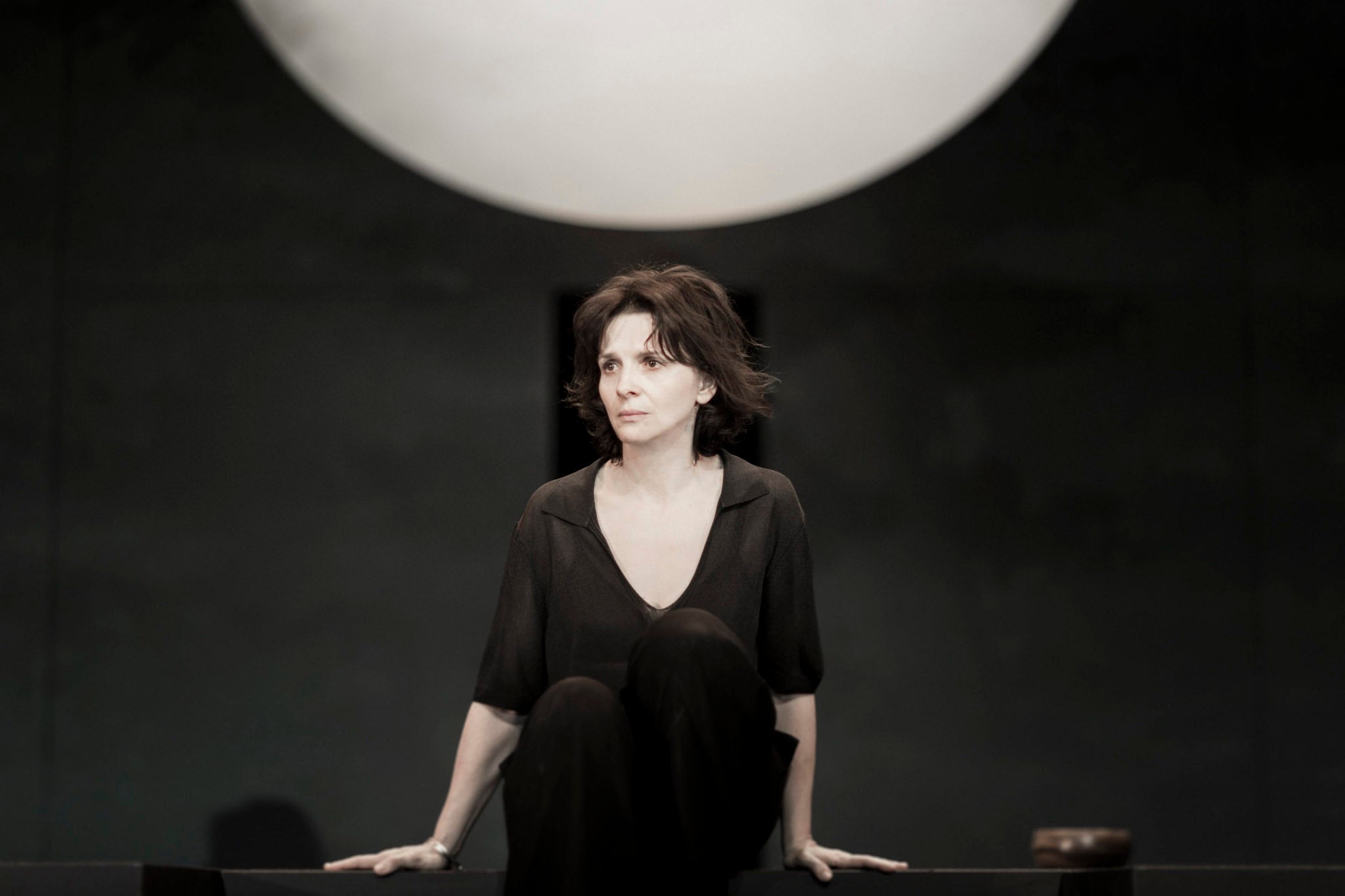Antigone, Barbican, theatre review: Juliette Binoche stars in a strangely unmoving Greek tragedy

Your support helps us to tell the story
From reproductive rights to climate change to Big Tech, The Independent is on the ground when the story is developing. Whether it's investigating the financials of Elon Musk's pro-Trump PAC or producing our latest documentary, 'The A Word', which shines a light on the American women fighting for reproductive rights, we know how important it is to parse out the facts from the messaging.
At such a critical moment in US history, we need reporters on the ground. Your donation allows us to keep sending journalists to speak to both sides of the story.
The Independent is trusted by Americans across the entire political spectrum. And unlike many other quality news outlets, we choose not to lock Americans out of our reporting and analysis with paywalls. We believe quality journalism should be available to everyone, paid for by those who can afford it.
Your support makes all the difference.On paper, this is a de luxe proposition. Sophocles' play is one of the greatest and most inextricably unresolvable of Greek tragedies.
It's directed by the Belgian maestro, Ivo van Hove, whose version of A View from the Bridge garnered rave reviews at the Young Vic and continues to mesmerise audiences in the West End with the ritualistic, Attic-style pulse of its approach to Arthur Miller's 1950s domestic tragedy.
It brings screen legend Juliette Binoche back to the Barbican stage for the first time since she radiated dangerous, febrile languor in 2012 as Miss Julie in a French-language production of Strindberg's masterpiece. And it's presented in a version by Anne Carson, the brilliant, prize-winning Canadian poet and rigorous classicist whose creative mediations between the ancient Greek and modern worlds are renowned for their spiky stimulation. You can see why the show – an enterprising Barbican co-production – is bound for a European tour, the Edinburgh Festival, the United States and a BBC broadcast.
In practice, however, it turns out to be an undeniably impressive but strangely unmoving experience – deliberate to a fault, full of thought-provoking interpretive decisions, yet incapable of grabbing you by the gut. Binoche – grim, white-faced, implacable, clad in black trousers – cuts a striking figure of lonely intransigence as the heroine who defies her uncle Kreon, the new ruler of Thebes, by burying her traitor-brother Polyneikes against his orders, thus triggering the conflict between two imperatives – obligation to the man-made edicts of the state and duty to unalterable divine law and the ties of kinship – that powers the play.
The philosopher Hegel thought that Antigone is a true tragedy because it dramatises a collision in which both sides are right. In this modern-dress production, though, it's the sense of a fatal symbiosis between two rebarbative figures, equally unwilling to compromise, that predominates. There's a worrying, fanatical edge to Binoche's shrill, ranting Antigone, who, all too discomfitingly, fits the Chorus's description: “you have in you a kind of absolute exclusive self-regarding rage”, not least in the strident indignation with which she rejects her sister's offer to share her fate. This Antigone demands sole rights to her martyrdom. And Patrick O'Kane's quietly bullish and bullying technocrat take on Kreon puts the emphasis less on the understandable pragmatic pressures on a leader struggling to unify a society emerging from civil war than on the defensive misogyny of a weak, wilful man (“I will not be bested by a woman”) who seems to regard Antigone's ethical defiance as a challenge to his virility.
There are several features of the production that have an insinuating, incremental power – the suggestive way, say, that the characters double as members of the Chorus so that, after the heroine's death, Binoche reappears, with an implicit twist of vindictiveness, as the Messenger informing the agonised Kreon of the horrible fate of his wife and son. But, for my taste, the calculatedly low-key tone, and the abstract staging, with its video design of deserts and blurry urban crowds and its sonorous underscoring, sap this endlessly relevant play of its raw urgency.
To March 28; 020 763 8891
Join our commenting forum
Join thought-provoking conversations, follow other Independent readers and see their replies
Comments